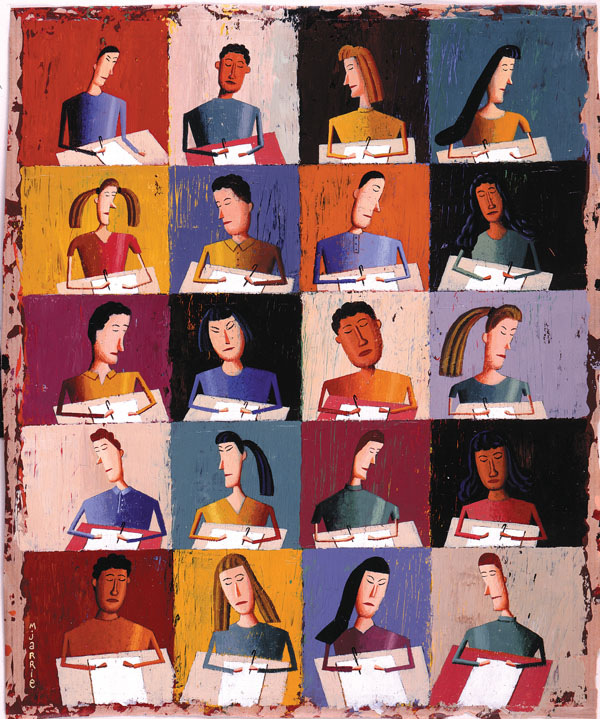Making the grade(s) — I
At 5 p.m. on Tuesday, Jan. 15, undergraduates breathed a sigh of relief as they handed in their papers and essays for the fall semester. For most students, Dean’s Date — the final deadline for written assignments — meant freedom from those pesky research papers and a brief chance to catch their breath before finals began.
Dean’s Date, however, had a far different meaning for another set of Princeton students. For graduate student preceptors, it meant a mountain of assignments that had to be read and marked before final grades were due at the end of the month.
Dael Norwood, a history preceptor, estimated that he would spend about 20 hours in January grading papers and exams for the 11 students in his precept — almost two hours per student.
“From our perspective, we’re just slammed with all of these papers to read,” said Susan Robison, a preceptor in the psychology department.
To add a little cheer to the grading ritual, Robison organized a Dean’s Date grading party on Jan. 17. Preceptors braved the wintry night to gather in the Butler community room, where they ate snacks, offered sympathy to swamped colleagues, and began their January grading.
Graduate students often turn to their fellow preceptors for support and advice when grading challenges arise. Last December Alice Hsiaw sat down with other graders from the economics department to discuss their students’ junior-paper prospectuses. By comparing notes, Hsiaw said, the group was able to get a better sense of whether they were grading their students fairly.
“Sometimes graduate students have a hard time remembering what they did and didn’t know” as undergraduates, Hsiaw said. “It can be difficult to know whether they are expecting too much or
too little of their students.”
Norwood added that “after reading a student’s paper over a few times, the temptation is to mentally fill in the blanks in their work. You start thinking they’re saying more than they are.”
Of course, tales of the heavy January workload for preceptors are unlikely to inspire much sympathy in the undergraduates whose work they are grading. One of Robison’s students penciled in a question of his own for the person reading his exam: “Why is this final so long?!”













No responses yet